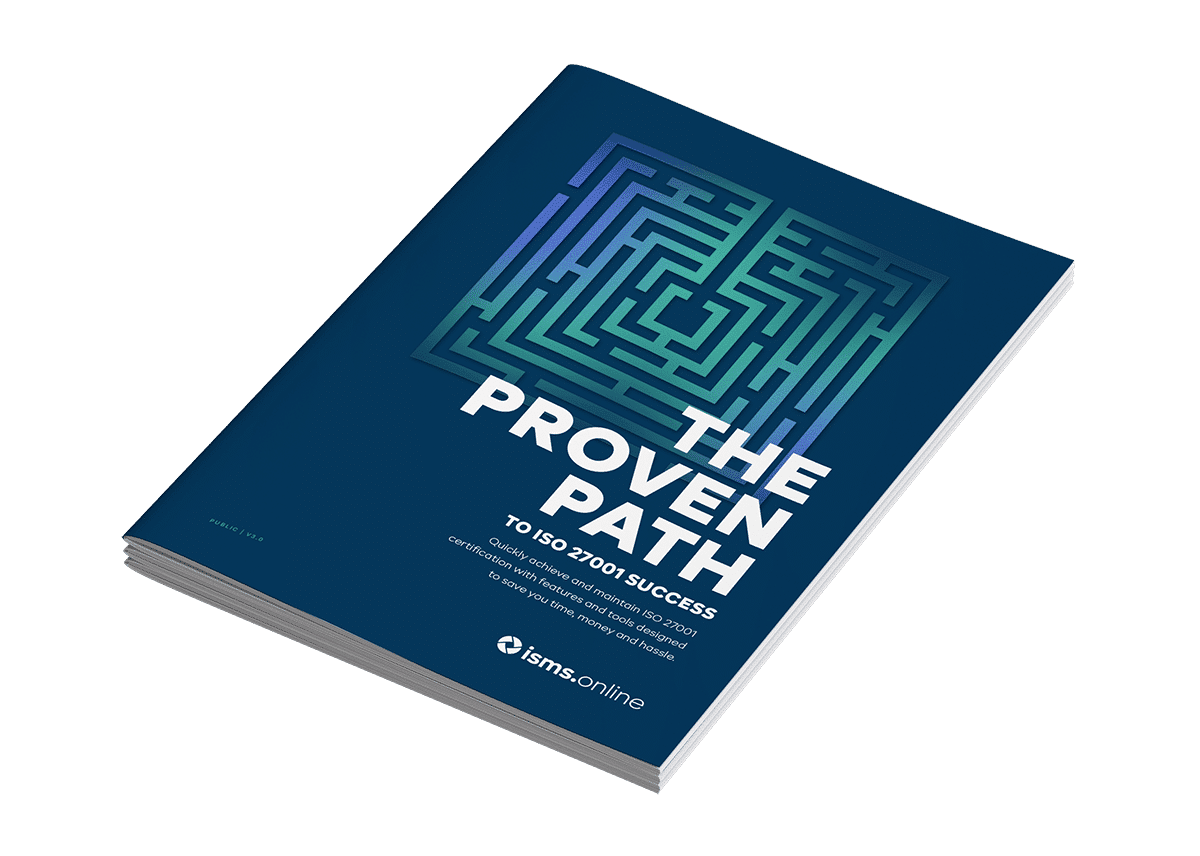
Audits are commonly used to ensure that an activity meets a set of defined criteria. For all ISO management system standards, audits are used to ensure that the management system meets the relevant standard’s requirements, the organisation’s own requirements and objectives, and remains efficient and effective. It will be necessary to conduct a programme of audits to confirm this.
An ISO 27001 audit involves a competent and objective auditor reviewing:
In addition to the overall compliance and effectiveness of the ISMS, as ISO 27001 is designed to enable an organisation to manage it’s information security risks to a tolerable level, it will be necessary to check that the implemented controls do indeed reduce risk to a point where the risk owner(s) are happy to tolerate the residual risk.
The standard requires that an organisation is required to plan and conduct a schedule of “internal audits” to be able to claim compliance with the standard. Furthermore, if an organisation desires to achieve certification, it will require “external audits” to be carried out by a “Certification Body” – an organisation with competent auditing resources against ISO 27001.
To ensure maximum benefit from the ISMS, it is strongly recommended to ensure that the certification body selected is accredited by a recognised supervising authority. Within the UK, certification bodies are accredited by UKAS – the United Kingdom Accreditation Service.
Internal audits, as the name would suggest, are those audits carried out by the organisation’s own resources. If the organisation does not have competent and objective auditors within its own staff, these audits can be carried out by a contracted supplier. These are often referred to as “2nd party audits” since the supplier acts as an “internal resource”.
The term “external audits” most commonly applies to those audits carried out by a certification body to gain or maintain certification. However, the term may also be used to refer to those audits carried out by other interested parties (e.g. partners or customers) wishing to gain their own assurance of the organisation’s ISMS. This is especially true when such a party has requirements that go beyond those of the standard.
We’ve made more ISO 27001 progress in the last 2 weeks using ISMS.online than we have in the past year.
Without verifying how your ISMS is managed and performs, there is no real guarantee of assurance that it is delivering against the objectives it is set to fulfil.
Audits go some way to providing this assurance.
There are many reasons for auditing your ISMS:

Download your free guide to fast and sustainable certification

We just need a few details so that we can email you your guide to achieving ISO 27001 first-time
Download your free guide now and if you have any questions at all then Book a Demo or Contact Us. We’ll be happy to help.
If you don’t use ISMS.online, you’re making your life more difficult than it needs to be!
The processes for external audit are essentially the same as for the internal audit programme but usually carried out to achieve and maintain certification.
The programme of external [certification] audits will be determined by the external auditors [certification body] but will follow a systematic requirement (see below).
The relevant auditor will provide a plan of the audit, and once the organisation confirms this, resources will be allocated and dates, times and locations agreed.
The audit will then be conducted following the audit plan.
Different accreditation bodies around the world set out different requirements for the programme of certification audits; however, in the case of UKAS accredited certificates, this will include:
In addition to the formal certification external audits programme above, you may be required to undergo an external audit by an interested third party such as a customer, partner, or regulator. The relevant party will normally provide you with an audit plan and follow up with an audit report that should be fed into your ISMS Management Review.

A tailored hands-on session based on your needs and goals
The organisation’s decision to achieve compliance and possibly certification to ISO 27001 will depend on implementing and operating a formal, documented ISMS. This will often be documented within a business case that will identify the expected objectives and return on investment.
Without certification, the organisation can only claim “compliance” to the standard, and this compliance is not assured by any accredited third party. If the reason for implementing the ISMS is only for improved security management and internal assurance, then this may be sufficient.
For maximum benefit and return on investment to be gained from the ISMS in terms of providing assurance to the organisation’s external interested parties and stakeholders, an independent, external, accredited certification audit programme will be required.
Remember that the only difference in terms of effort between “compliance” and “certification” is the programme of external certification audits. This is because to claim “compliance” to the standard truly the organisation will still have to do everything required by the standard – self-tested “compliance” does not reduce the resources required and the effort involved in implementing and operating an ISMS.
When preparing for a certification audit, the following key points should be considered:
We felt like we had
the best of both worlds. We were
able to use our
existing processes,
& the Adopt, Adapt
content gave us new
depth to our ISMS.
Our ISMS comes pre-configured with tools, frameworks and documentation you can Adopt, Adapt or Add to. Simple.
Our Assured Results Method is designed to get you certified on your first attempt. 100% success rate.
Forget about time consuming and costly training. Our Virtual Coach video series is available 24/7 to guide you through.
All audits against ISO 27001 must be carried out by competent and objective auditors.
To demonstrate competence for ISO 27001 audit, it is usually required that the auditor has demonstrable knowledge of the standard and how to conduct an audit. This may be through attending an ISO 27001 Lead Auditor course or through having another recognised auditing qualification and then provable knowledge of the standard. It can be possible to show that an auditor is competent without formal training. However, this is likely to be a more difficult conversation with your certification body.
To demonstrate objectivity, it must be shown that the auditor is not auditing their own work and that they are not unduly influenced via their reporting lines.
It may be more practical for smaller organisations or those wanting clearer objectivity to bring in a contracted auditor.
Certification bodies will have checked their auditors for competence and should be prepared to demonstrate that to you on request.
ISMS.online includes a pre-built audit programme project covering both internal and external audits and may also include audits against GDPR if you have taken this option.
The pre-built audit programme includes:
As well as providing the audit programme project, the ability to quickly link to other work areas within the all-in-one-place ISMS.online platform means linking audit findings to controls, corrective actions and improvements, and even risks are made easy and accessible. This will enable you to easily demonstrate to your external auditor the joined-up management of identified findings.
ISMS.online is a
one-stop solution that radically speeded up our implementation.
We started off using spreadsheets and it was a nightmare. With the ISMS.online solution, all the hard work was made easy.
Easily collaborate, create and show you are on top of your documentation at all times
Find out moreEffortlessly address threats & opportunities and dynamically report on performance
Find out moreMake better decisions and show you are in control with dashboards, KPIs and related reporting
Find out moreMake light work of corrective actions, improvements, audits and management reviews
Find out moreShine a light on critical relationships and elegantly link areas such as assets, risks, controls and suppliers
Find out moreSelect assets from the Asset Bank and create your Asset Inventory with ease
Find out moreOut of the box integrations with your other key business systems to simplify your compliance
Find out moreNeatly add in other areas of compliance affecting your organisation to achieve even more
Find out moreEngage staff, suppliers and others with dynamic end-to-end compliance at all times
Find out moreManage due diligence, contracts, contacts and relationships over their lifecycle
Find out moreVisually map and manage interested parties to ensure their needs are clearly addressed
Find out moreStrong privacy by design and security controls to match your needs & expectations
Find out moreDownload our free guide to fast and sustainable certification